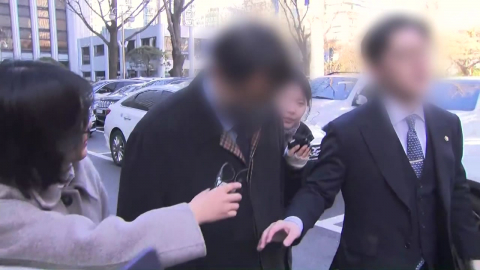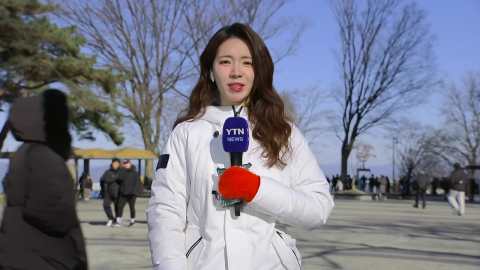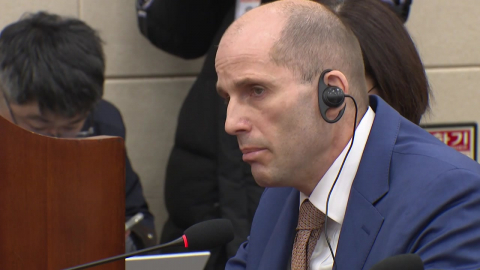-
정청래 "김병기, 지난달 25일 밤 9시 윤리감찰단에 조사 지시"…금품 의혹도 조사대상재생
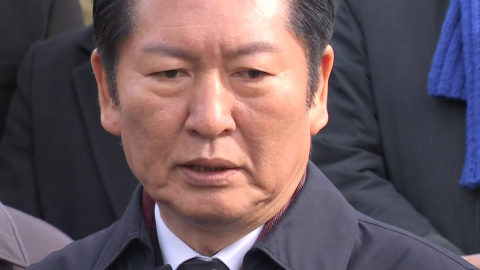
- 공천 헌금·집안싸움에…새해 첫날 여야 ’속앓이’
- ’공천 헌금’ 수사 본격화…김병기 의혹 조사 ’속도’
- 한동훈 "동명이인 글로 조작, 법적 조치"…내홍 폭발
-
새해부턴 ’법원의 시간’…윤석열·김건희 재판 11건재생
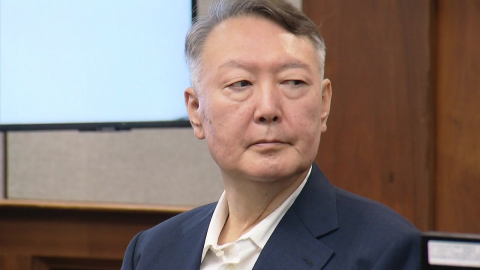
-
윤석열 전 대통령 부부를 정점으로 하는 특검 수사가 모두 끝나며, 심판과 공방의 무대는 법원으로 옮겨지게 됐습니다. 윤 전 대통령 부부는 재판 11건을 받고 있는데, 선고 기한이 정해진 만큼 새해부터 법원 심리도 빨라질 전망입니다. 취재기자 연결해 알아보겠습니다. 우종훈 기자! 윤 전 대통령 부부 선고는 언제입니까? [기자] 윤 전 대통령은 오는 16일, 김건희 씨는 28일 첫 선고를 앞두고 있습니다. 윤 전 대통령은 공수처 체포 방해와 계엄 국무회의 관련 국무위원 심의권 침해 혐의 등을 받고 있습니다. 앞서 결심에서 특검은 윤 전 대통령이 국가기관을 사유화하고도 반성은커녕 하급자들에게 책임을 전가하고 있다며 징역 10년을 구형했습니다. 윤 전 대통령은 59분 동안 이어진 최후진술에서 특검 공소장이 코미디 같다며 혐의를 부인했습니다. 배우자 김건희 씨는 도이치모터스 주가조작과 공천 개입, 통일교 금품 수수 혐의로 법원 판단을 기다리고 있습니다. 특검은 김 씨가 법 위에 서 있었다며 징역 15년을 선고해달라고 요청했습니다. [앵커] 윤 전 대통령 부부에 대한 재판은 이뿐 아니죠? [기자] 네, 윤 전 대통령 부부는 총 11건의 사건들로 재판에 넘겨진 상황입니다. 윤 전 대통령은 내란과 평양 무인기 침투 등 혐의로도 재판을 받고 있는데요. 가장 주목되는 건 내란 우두머리 혐의 재판입니다. 김용현 전 장관, 조지호 전 경찰청장 등 다른 피고인들과 사건을 병합한 재판부는 오는 9일 변론종결을 목표로 하고 있습니다. 김건희 씨 역시 고가의 금품을 대가로 인사나 공천 청탁을 들어준 혐의 등으로 기소된 상태라 줄줄이 재판이 이어질 예정입니다. 이 밖에도 내란 혐의를 받는 한덕수 전 총리는 21일, 통일교로부터 돈을 받은 혐의로 기소된 국민의힘 권성동 의원은 28일에 1심 선고를 앞두고 있습니다. 지금까지 사회부에서 YTN 우종훈입니다. ※ ’당신의 제보가 뉴스가 됩니다’ [카카오톡] YTN 검색해 채널 추가 [전화] 02-398-8585 [메일] social@ytn.co.kr
실시간 이슈
에디터 추천뉴스
-
재생
![[현장영상+] 민주당 봉하마을 참배…정청래 대표 ’약식 회견’](https://image.ytn.co.kr/general/jpg/2026/0101/202601011323434882_h.jpg) [현장영상+] 민주당 봉하마을 참배…정청래 대표 ’약식 회견’
[현장영상+] 민주당 봉하마을 참배…정청래 대표 ’약식 회견’ -
재생
![[현장영상+] 장동혁 "국민 삶 섬기면 지방선거 승리 따라올 것"](https://image.ytn.co.kr/general/jpg/2026/0101/202601011125189253_h.jpg) [현장영상+] 장동혁 "국민 삶 섬기면 지방선거 승리 따라올 것"
[현장영상+] 장동혁 "국민 삶 섬기면 지방선거 승리 따라올 것" -
재생
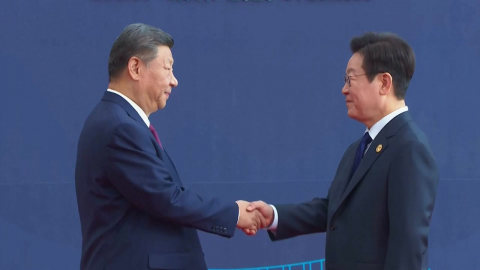 이 대통령 새해 첫 방중…’적토마’ 맞이 기대감
이 대통령 새해 첫 방중…’적토마’ 맞이 기대감 -
재생
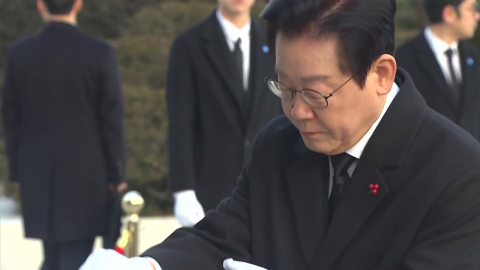 이 대통령, 새해 첫 일정 현충원 참배…’대도약 원년’ 신년사 발표
이 대통령, 새해 첫 일정 현충원 참배…’대도약 원년’ 신년사 발표 -
재생
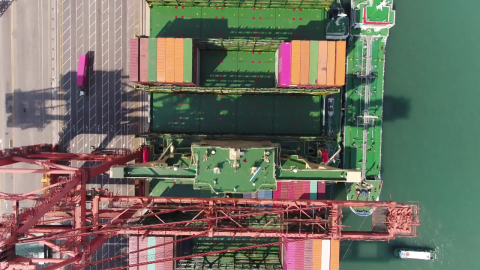 위기 속에서 신기록 쓴 ’수출 성적표’…반도체가 이끌었다
위기 속에서 신기록 쓴 ’수출 성적표’…반도체가 이끌었다 -
재생
 전기차로 바꾸면 100만 원 더…보조금 최대 680만 원
전기차로 바꾸면 100만 원 더…보조금 최대 680만 원 -
재생
 통합특별시 출범 지원…민원 처리는 '원스톱'으로
통합특별시 출범 지원…민원 처리는 '원스톱'으로 -
재생
 안양샘 병원에서 불…환자 등 3백여 명 대피
안양샘 병원에서 불…환자 등 3백여 명 대피 -
재생
 미 국무부 "한국 정통망법에 중대 우려…미 플랫폼 기업에 부정적"
미 국무부 "한국 정통망법에 중대 우려…미 플랫폼 기업에 부정적" -
재생
 건국 250주년 맞은 미국…"새해 경제 회복·갈등 극복되길"
건국 250주년 맞은 미국…"새해 경제 회복·갈등 극복되길" -
재생
 뉴욕 타임스퀘어 새해맞이 볼 드롭에 백만 명 운집
뉴욕 타임스퀘어 새해맞이 볼 드롭에 백만 명 운집 -
재생
 새해에도 트럼프 ’미국 우선주의’ 계속…중간선거 시험대
새해에도 트럼프 ’미국 우선주의’ 계속…중간선거 시험대
많이 본 뉴스
- 1 [속보] 정청래 "김병기 의혹, 윤리감찰단에 조사 지시"
- 2 이 대통령 새해 첫 방중...’적토마’ 맞이 기대감
- 3 연인 살해 후 고속도로에 유기..."돈 문제로 다투다 범행"
- 4 전기차로 바꾸면 100만 원 더...보조금 최대 680만 원
- 5 경찰 '주사이모' 출국금지....박나래 의혹 수사 본격화
- 6 75% 뛰며 4천피 돌파...환율 평균 '역대 최고'
- 7 ’1억 수수’ 김병기·강선우 의혹, 서울청 직접 수사
- 8 안양샘 병원에서 불...환자 등 3백여 명 대피
- 9 "아침부터 줄 서서 샀다"...스벅 '곰돌이 컵' 인기에 리셀가도 폭등 [지금이뉴스]
- 10 [현장영상+] 민주당 봉하마을 참배...정청래 대표 ’약식 회견’
